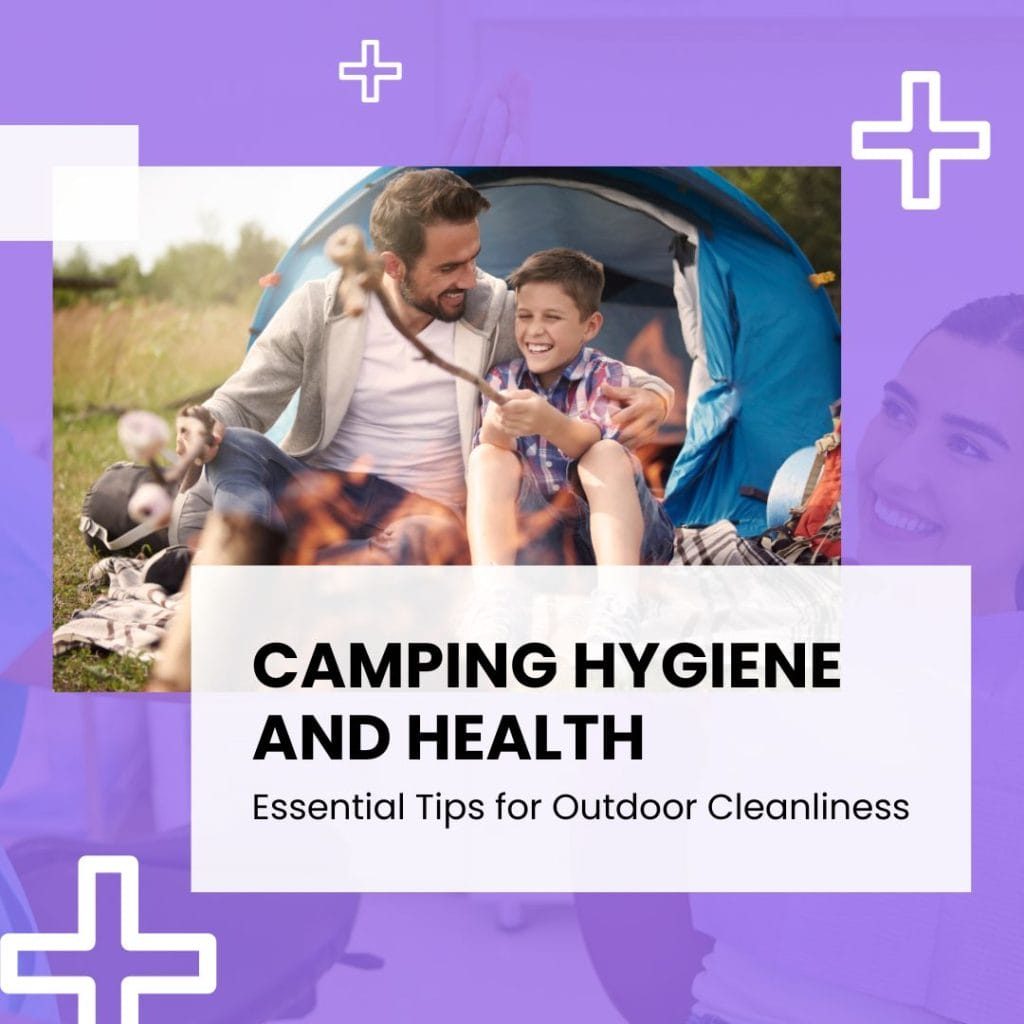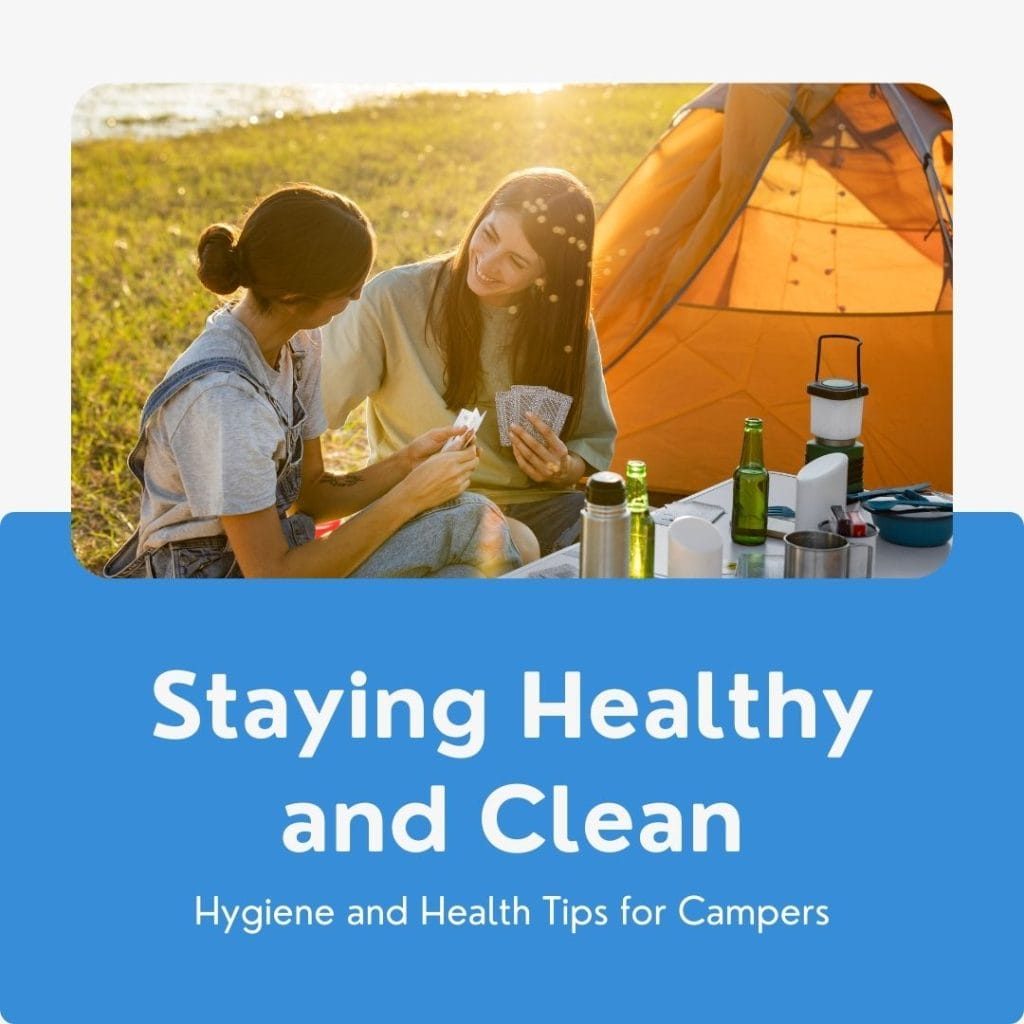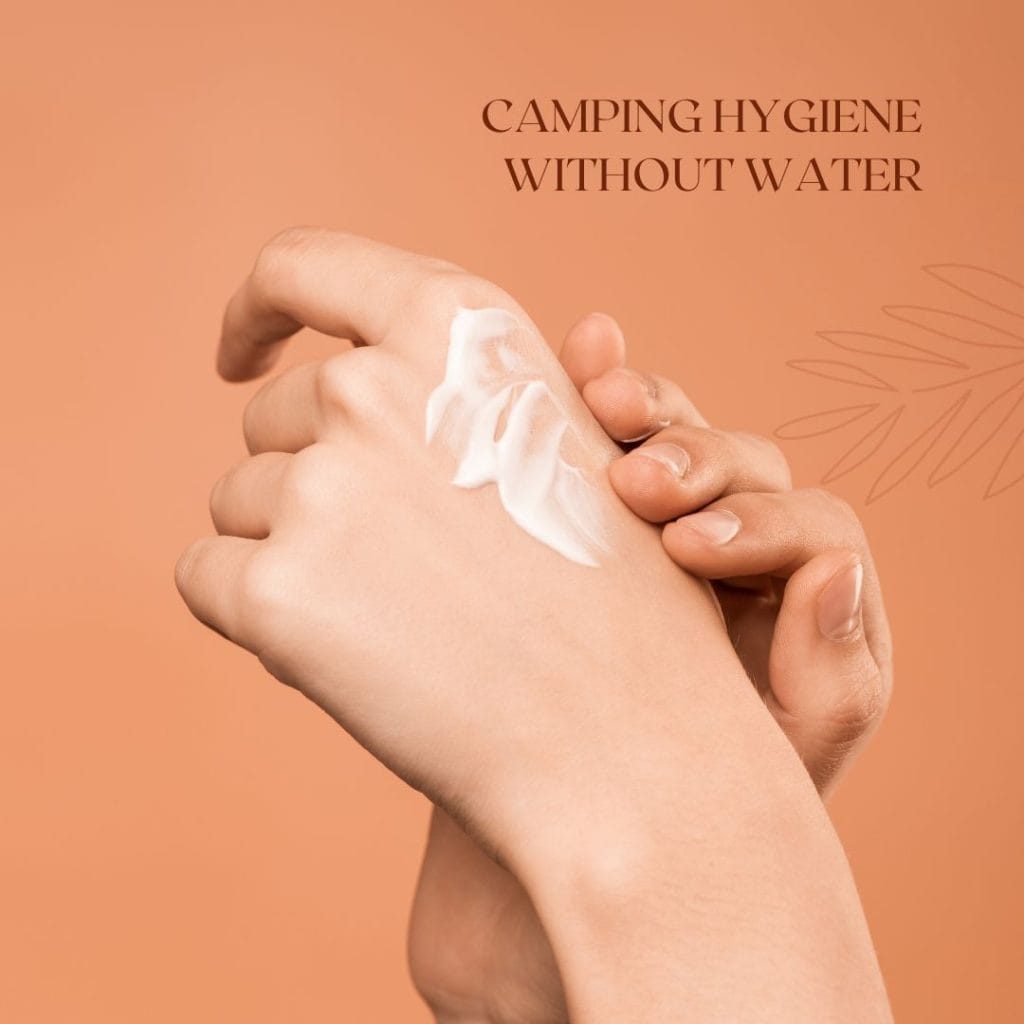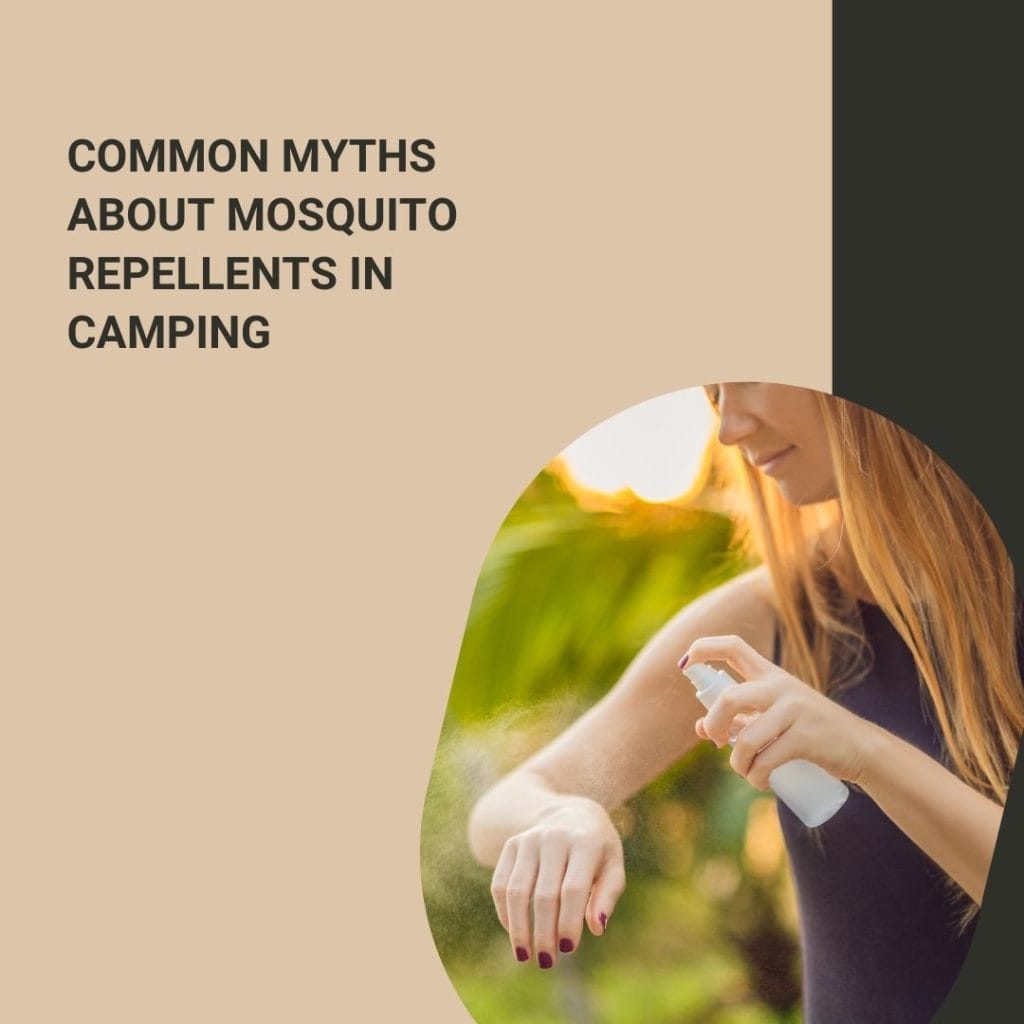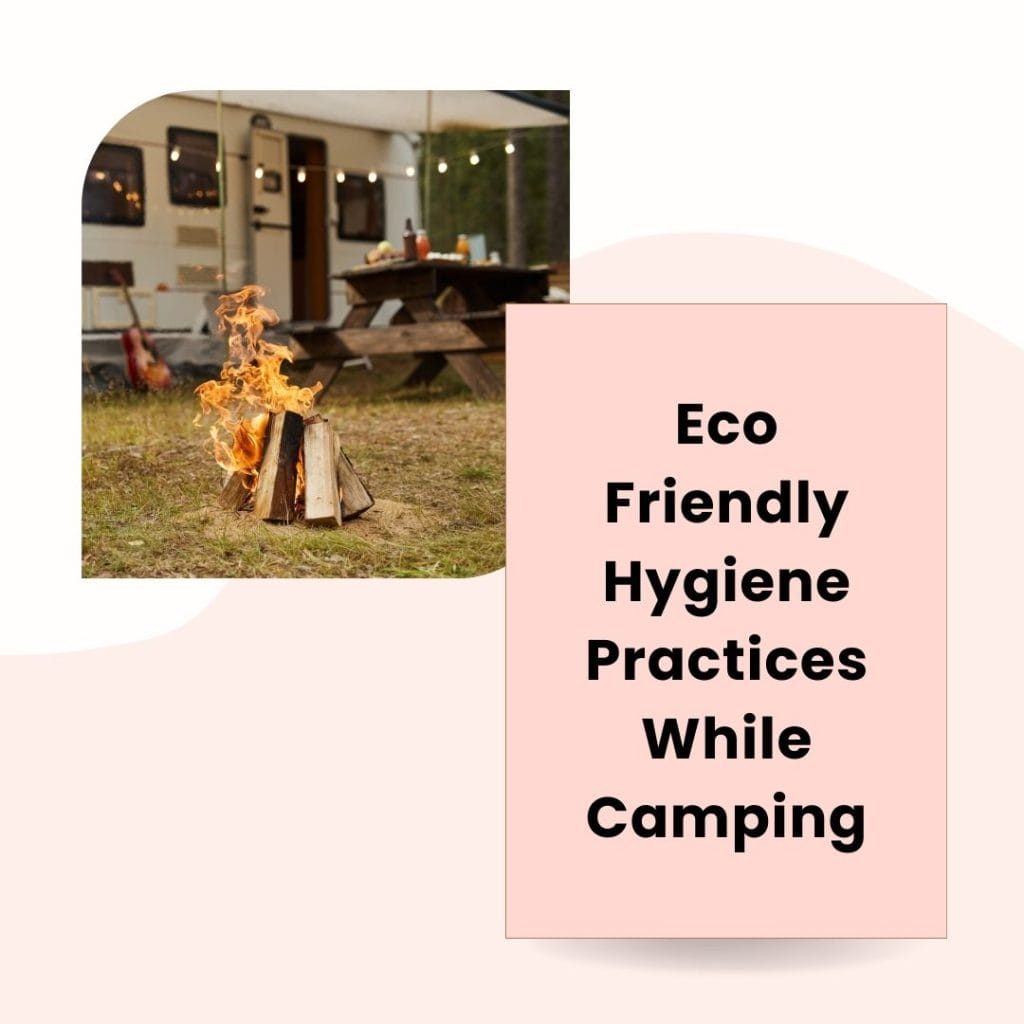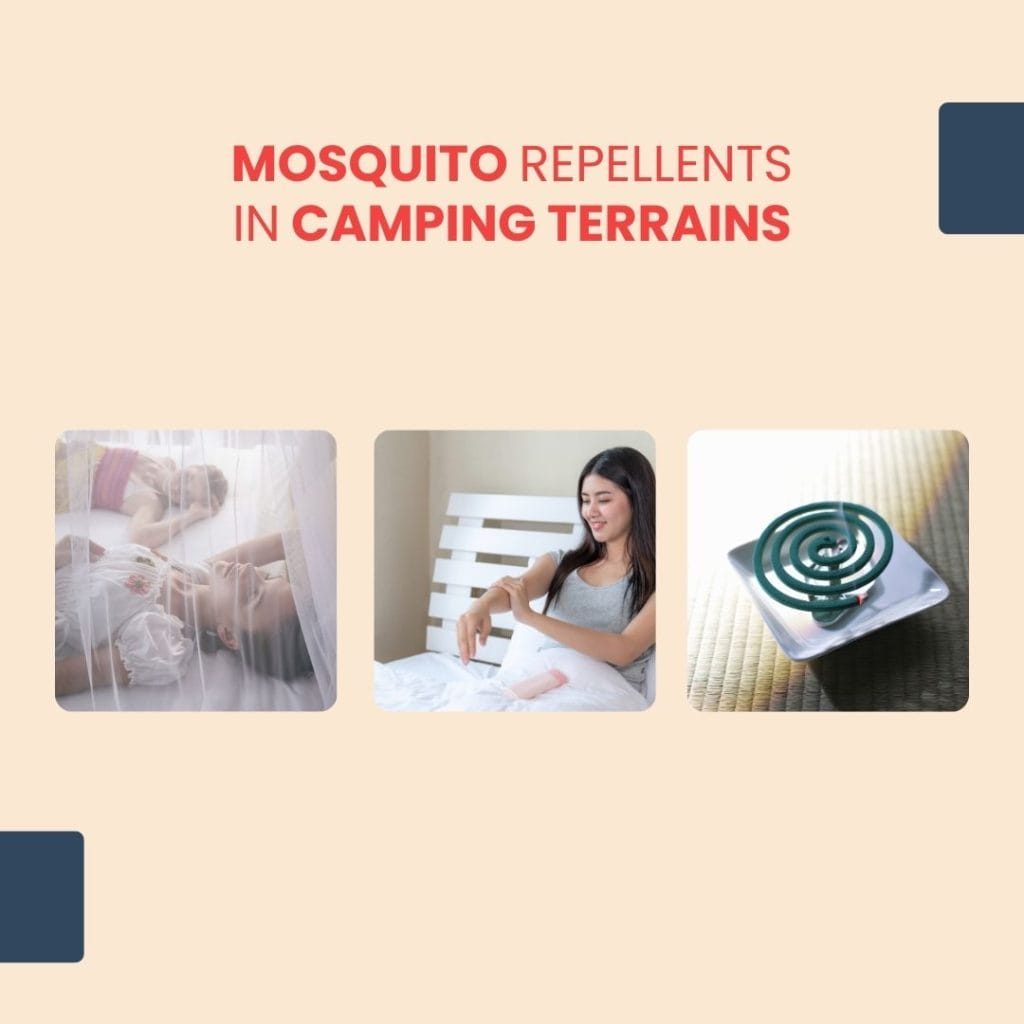Camping offers a unique connection with nature, but it also presents challenges in maintaining personal hygiene. This guide will focus on sustainable camping hygiene, providing responsible solutions that not only keep you fresh but also preserve the natural surroundings we all cherish.
Sustainable Hygiene Practices for Campers: Beyond Body Wipes
Sustainable camping hygiene is not only about keeping oneself clean, but also about preserving the natural environment. Campers often resort to disposable wipes, but these products can have a negative impact on the environment. They often contain non-biodegradable elements that can take years to decompose, polluting the soil and water bodies.
One of the primary tenets of sustainable camping hygiene is the use of biodegradable products. This could be soap, toothpaste, or paper towels, that are specifically designed to have minimal environmental impact. Ensure to use these products at least 200 feet away from water sources, to prevent contamination.
Another important aspect is water conservation. Campers can use a number of techniques to save water, such as taking sponge baths, using a small amount of water for brushing teeth, and collecting rainwater for washing dishes and clothes. These practices can significantly reduce the amount of water used during camping trips.
Human waste management is another crucial element of sustainable camping hygiene. It’s recommended to use portable toilets or to dig catholes that are at least 6 to 8 inches deep and 200 feet away from water, trails, and campsites. Always ensure to cover the waste properly to prevent it from being exposed to wildlife.
Lastly, dealing with trash responsibly is vital. Pack out everything you bring in, including personal hygiene products. Consider using reusable items, like cloth towels instead of paper ones, and menstrual cups in place of disposable pads or tampons for female campers.
Moving beyond these basic guidelines, let’s delve into some of our top recommended practices to keep your personal hygiene at its best during your camping adventures…
Take improvised showers
Taking showers during camping can be quite a challenge unless you’re lucky enough to camp near a gentle waterfall. This is where Wet Ones – biodegradable and skin-friendly wipes – become handy. These wipes are capable of cleaning your body thoroughly, reaching even the most hidden nooks and crannies. They provide a refreshing feeling, especially during warm weather, ensuring not only cleanliness but also a sense of rejuvenation. Importantly, Wet Ones are dermatologically tested, meaning they are safe and gentle on your skin, reducing the risk of allergic reactions or irritations. Remember, maintaining personal hygiene during camping is crucial, but it should not come at the expense of the environment.
Switch Toothpaste
Opting for an organic or natural toothpaste can significantly enhance your sustainable camping hygiene efforts. Regular minty toothpastes often contain chemicals and microbeads, which can harm the local flora and fauna in the long run. On the other hand, organic toothpastes are typically free from such harmful ingredients, making them a more eco-friendly choice for campers.
Brushing your teeth in the wilderness should be slightly different from your routine at home. To minimize the environmental impact, use your drinking water while brushing. Take a swig of water, swish it around in your mouth with the toothpaste, and dilute the mixture before you spit it out. This technique ensures that any remnants of your toothpaste are sufficiently diluted, reducing their potential to cause environmental harm. Always remember: every small step toward sustainability counts when enjoying nature’s splendors.
Hold back some fresh clothing
When embarking on your camping adventure, it’s common to want to pack light. Yet, the temptation to wear fresh clothes every day can be strong. Here’s a sustainable tip: resist the urge.
Try to make your clothes last a bit longer. There’s nothing wrong with wearing your clothes for more than a day while camping. After all, it’s about embracing the great outdoors, not a fashion show.
If you’re camping for a prolonged period, keep a set of fresh, clean clothes tucked away at the bottom of your bag. Anticipating that moment when you change into this set of fresh clothes can be exhilarating, especially when fresh clothes are scarce.
Remember, the wilderness won’t provide you with that “freshly laundered” feeling. But slipping into a clean set of clothes after days in the same outfit? That’s a luxury in itself while camping.
You can wash clothes if you need to
Don’t fret if you are planning a long-term camping adventure and cannot pack enough clothes for the entire duration. You can adopt a sustainable camping hygiene practice to keep your wardrobe fresh. On a warm, sunny day, ideal for quick drying, gather your worn clothes and prepare for a small laundry session by the campsite.
Use a tub or a portable wash basin filled with warm water and mix in some biodegradable, eco-friendly soap. Hand-wash your clothes, focusing on removing the dirt rather than stubborn stains. While this method may not guarantee spotless clothes, it will undoubtedly freshen them up, making them more comfortable to wear.
However, remember to wash your undergarments in batches to ensure you always have a dry pair on standby. By adopting this practice, you can significantly reduce the amount of clothing needed for your camping trip, all while staying committed to sustainable camping hygiene.
Keep your hands clean
Maintaining clean hands while camping is paramount, and Wet Ones can be your reliable companion in this endeavor. In the midst of nature, your hands can inadvertently become hosts to various bacteria, but eradicating these harmful microbes is not a daunting task with our hand wipes.
Known for their effectiveness, Wet Ones wipes eliminate 99.9% of bacteria, ensuring your hands remain clean and safe. Their portable nature means you can always keep them within arm’s reach. Frequent use throughout the day, especially before preparing meals and post bathroom visits, can substantially reduce the risk of infections.
In addition to Wet Ones, keeping a hand sanitizer close to you can prove beneficial. This extra layer of protection can act as a backup, ensuring your hands remain germ-free. Remember, sustainable camping hygiene doesn’t need to be complicated; products such as Wet Ones and hand sanitizers can make the process simpler and the experience more enjoyable.
Leave your sleeping clothes in the tent
Keep Your Sleeping Attire Exclusive
When camping, your sleeping attire may vary from lightweight pyjamas to a cosy hoodie, woolly hat, and snug warm socks. Regardless of your choice, it’s crucial to restrict these clothes to your tent throughout the camping adventure.
Avoid External Contaminants
Pollen and smoke from the campfire can easily embed into the fabric of your clothing. These tiny particles can irritate your skin, particularly during sleep when you want to be at your most comfortable.
A Simple, Sustainable Habit
Adopt the sustainable camping hygiene habit of keeping your sleeping garments within the boundaries of your tent. This way, you can maintain your comfort levels during sleep and contribute to your overall wellbeing during your camping trip.
Conclusion
Embracing sustainable camping hygiene practices doesn’t only preserve the beauty of nature, but also enhances your camping experience. From opting for eco-friendly products to maintaining clothing and personal hygiene in a sustainable way, every action contributes to the larger goal. So, next time you venture into the great outdoors, remember to integrate these ‘Sustainable Camping Hygiene’ practices into your routine. After all, nature gives us so much; it’s only fair that we give something back.

